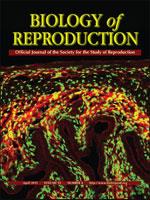Invasion of the maternal decidua by extravillous trophoblast is an important process for embryo implantation and placentation in humans. Motile behavior of decidual endometrial stromal cells has been considered of critical importance for embryo implantation and programming of human pregnancy. The gonadotropin-releasing hormone (GnRH) effects in endometrium have raised concerns in reproduction. In the present study, we examined the action of GnRH-II agonist-promoted motility of human decidual endometrial stromal cells and the mechanisms of the action, indicating the role of GnRH-II agonist in embryo implantation and early pregnancy. Human decidual endometrial stromal cells were isolated from the decidual tissue from healthy women undergoing elective pregnancy termination of a normal pregnancy at 6- to 12-wk gestation, after informed consent. Cell motility was estimated by invasion and migration assay. Zymography and immunoblot analysis were performed to investigate the mechanisms of the GnRH-II action. The GnRH-I receptor (GnRH-IR) was expressed in human decidual tissue and endometrial stromal cells. The GnRH-II agonist promoted cell motility. Mitogen-activated protein kinase inhibitors abolished GnRH-II agonist-induced cell motility and activation of MMP-2 and MMP-9. GnRH-II agonist-mediated cell motility was suppressed by knockdown of endogenous GnRH-IR, MMP (matrix metalloproteinase)-2, and MMP-9 with small interfering RNA and MMP inhibitors. Our study demonstrates that the GnRH-II agonist promoted the cell motility of human decidual endometrial stromal cells through the GnRH-IR and the phosphorylation of extracellular signal-regulated protein kinase 1/2 and JNK-dependent activation of MMP-2 and MMP-9. Our findings represent a new concept regarding the mechanisms of GnRH-II-promoted cell motility, suggesting that GnRH-II agonist has strong effects on embryo implantation and decidual programming of human pregnancy.
How to translate text using browser tools
11 March 2015
Gonadotropin-Releasing Hormone Type II (GnRH-II) Agonist Regulates the Motility of Human Decidual Endometrial Stromal Cells: Possible Effect on Embryo Implantation and Pregnancy
Hsien-Ming Wu,
Hong-Yuan Huang,
Chyi-Long Lee,
Yung-Kuei Soong,
Peter C.K. Leung,
Hsin-Shih Wang
ACCESS THE FULL ARTICLE

Biology of Reproduction
Vol. 92 • No. 4
April 2015
Vol. 92 • No. 4
April 2015
decidua
Endometrium
GnRH-II agonist
implantation
motility




